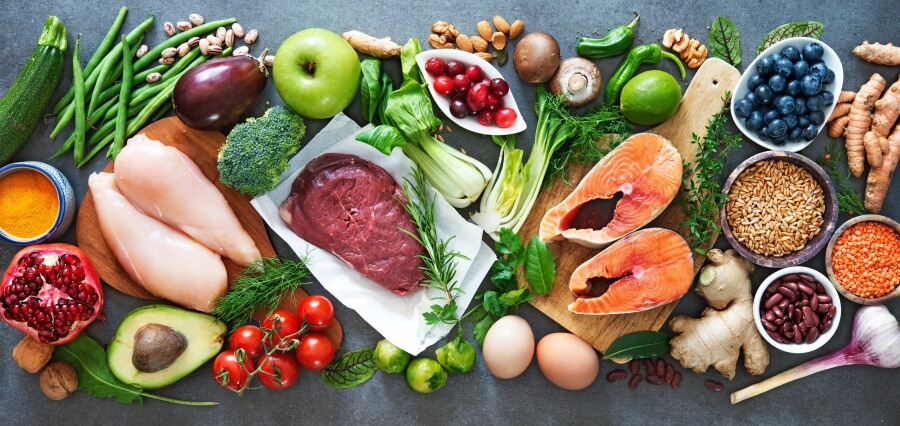Plant-Based Protein Alternatives
In recent years, a remarkable shift has been occurring in the way we approach nutrition and sustainability. As health consciousness grows and environmental concerns mount, more individuals are turning to plant-based protein alternatives. This trend isn’t just a passing fad; it’s a movement towards a more sustainable and health-conscious future.
A Growing Movement
The rise of plant-based diets is undeniable. In the United States alone, millions of adults now identify as vegetarian or vegan. This shift is driven by a combination of factors, including health concerns, environmental awareness, and ethical considerations.
Health-wise, the benefits of plant-based diets are well-documented. High meat consumption has been linked to various health risks, including obesity, heart disease, and diabetes. In contrast, diets rich in plant-based foods are associated with lower calorie intake and higher nutritional value, potentially mitigating these risks.
Nutritional Powerhouses
One common misconception about plant-based diets is that they lack adequate protein. However, numerous plant sources can easily fulfill our protein needs when incorporated thoughtfully into meals. The Recommended Daily Allowance (RDA) for protein is 0.8 grams per kilogram of body weight, a target that’s entirely achievable with plant-based sources.
Let’s explore some key plant-based protein sources:
- Legumes and Pulses: Beans, lentils, and chickpeas are protein powerhouses. A cup of boiled lentils, for instance, provides about 18 grams of protein. These foods are also rich in fiber, promoting digestive health and satiety.
- Soy Products: Tofu, tempeh, and edamame are complete proteins, containing all essential amino acids. Half a cup of firm tofu offers about 10 grams of protein, while tempeh provides around 15 grams. These versatile ingredients can be prepared in countless ways, making them staples in many plant-based diets.
- Quinoa: This gluten-free grain stands out as a complete protein source. With approximately 8 grams of protein per cooked cup, quinoa is an excellent addition to salads, soups, and grain bowls.
- Nuts and Seeds: Almonds, chia seeds, and hemp seeds not only provide protein but also healthy fats. An ounce of almonds contains about 6 grams of protein, making them a perfect snack or addition to meals.
- Seitan: Made from wheat gluten, seitan is a popular meat substitute in many cuisines. With about 21 grams of protein per 3.5 ounces, it’s a protein-dense option for those without gluten sensitivities.
- Plant-Based Protein Powders: For those with higher protein needs, such as athletes or highly active individuals, plant-based protein powders derived from pea protein, brown rice, or hemp can be valuable supplements.
Beyond Nutrition: Environmental and Ethical Considerations
The appeal of plant-based proteins extends beyond personal health. The environmental impact of meat production is significant, contributing to greenhouse gas emissions, deforestation, and excessive water usage. By shifting towards plant-based diets, we can potentially reduce our carbon footprint and contribute to a more sustainable food system.
Moreover, ethical concerns regarding animal welfare have prompted many to seek alternatives to animal products. Plant-based proteins offer a solution that aligns with ethical beliefs while maintaining nutritional adequacy.
The Future of Food
The plant-based protein market is experiencing rapid growth and innovation. Food technology companies are developing products that mimic the taste and texture of meat, appealing to a broader audience, including flexitarians who are reducing their meat intake without completely eliminating it.
These advancements are not just limited to meat alternatives. The dairy industry is also seeing a surge in plant-based options, with alternatives made from nuts, oats, and other plant sources gaining popularity.
Research in this field continues to evolve, focusing on enhancing the nutritional profiles and sensory qualities of plant-based products. Scientists are exploring novel protein sources and processing techniques to create more sustainable and palatable options.
Embracing the Change
As we look to the future, it’s clear that plant-based proteins will play an increasingly important role in our diets. This shift represents more than just a change in what we eat; it’s a holistic approach to health that considers personal wellbeing, environmental sustainability, and ethical considerations.
For healthcare professionals, understanding and embracing this trend is crucial. Patients and clients are increasingly seeking guidance on incorporating plant-based proteins into their diets. Being well-informed about the nutritional aspects, potential benefits, and practical ways to adopt plant-based eating can greatly enhance patient care and support.
Moreover, healthcare institutions themselves can lead by example. Incorporating more plant-based options in hospital cafeterias and patient meals not only promotes health but also demonstrates a commitment to sustainability.
The journey towards a more plant-based diet doesn’t have to be all-or-nothing. It is possible to make a significant difference by making small, gradual changes over time. Encouraging patients to start with “Meatless Mondays” or to experiment with plant-based meals a few times a week can be an excellent starting point.
As we continue to face global challenges related to health, climate change, and resource scarcity, the shift towards plant-based proteins offers a promising solution. By embracing this change, we’re not just transforming our plates – we’re contributing to a healthier, more sustainable future for ourselves and the planet.
Read More: Click Here










